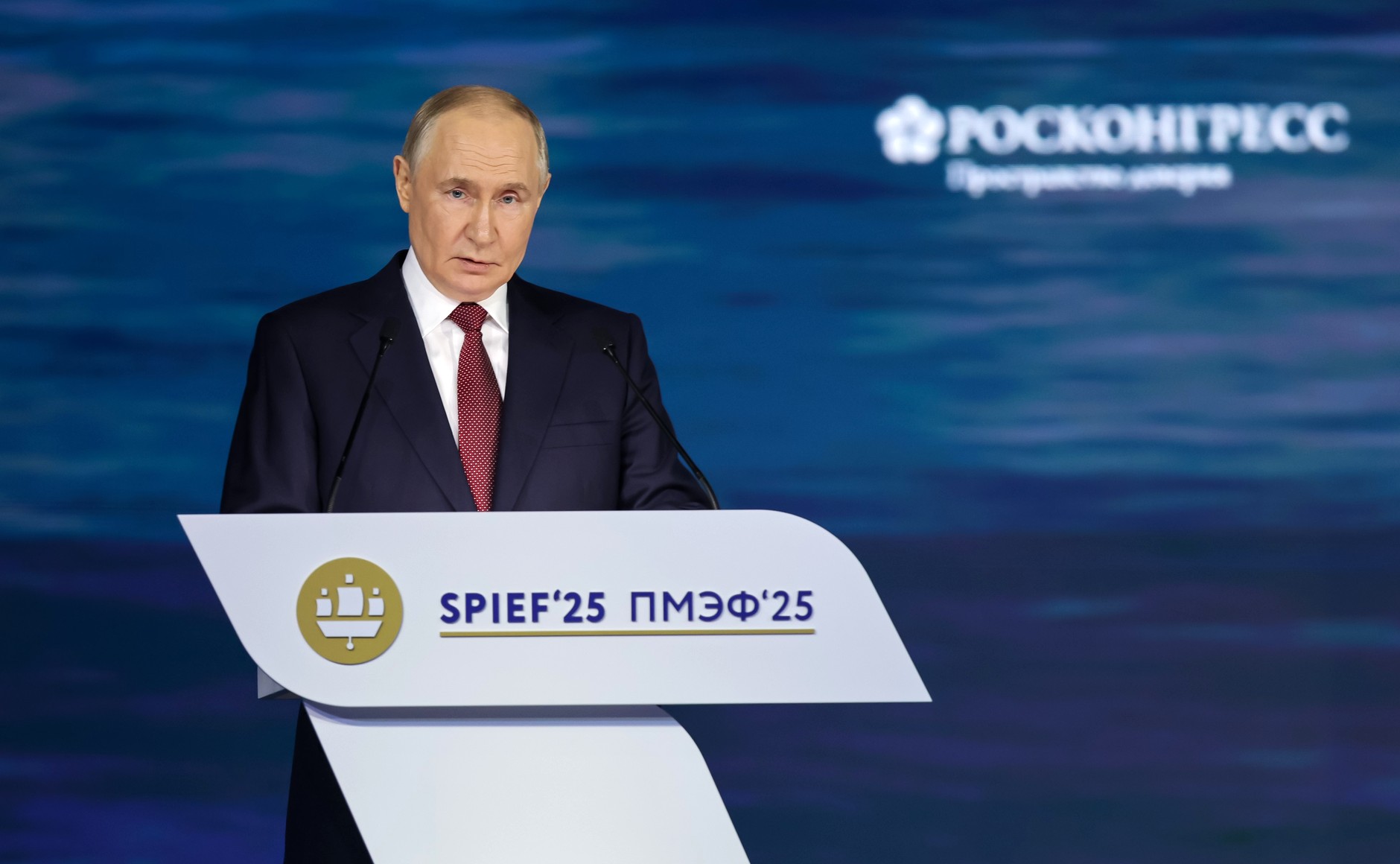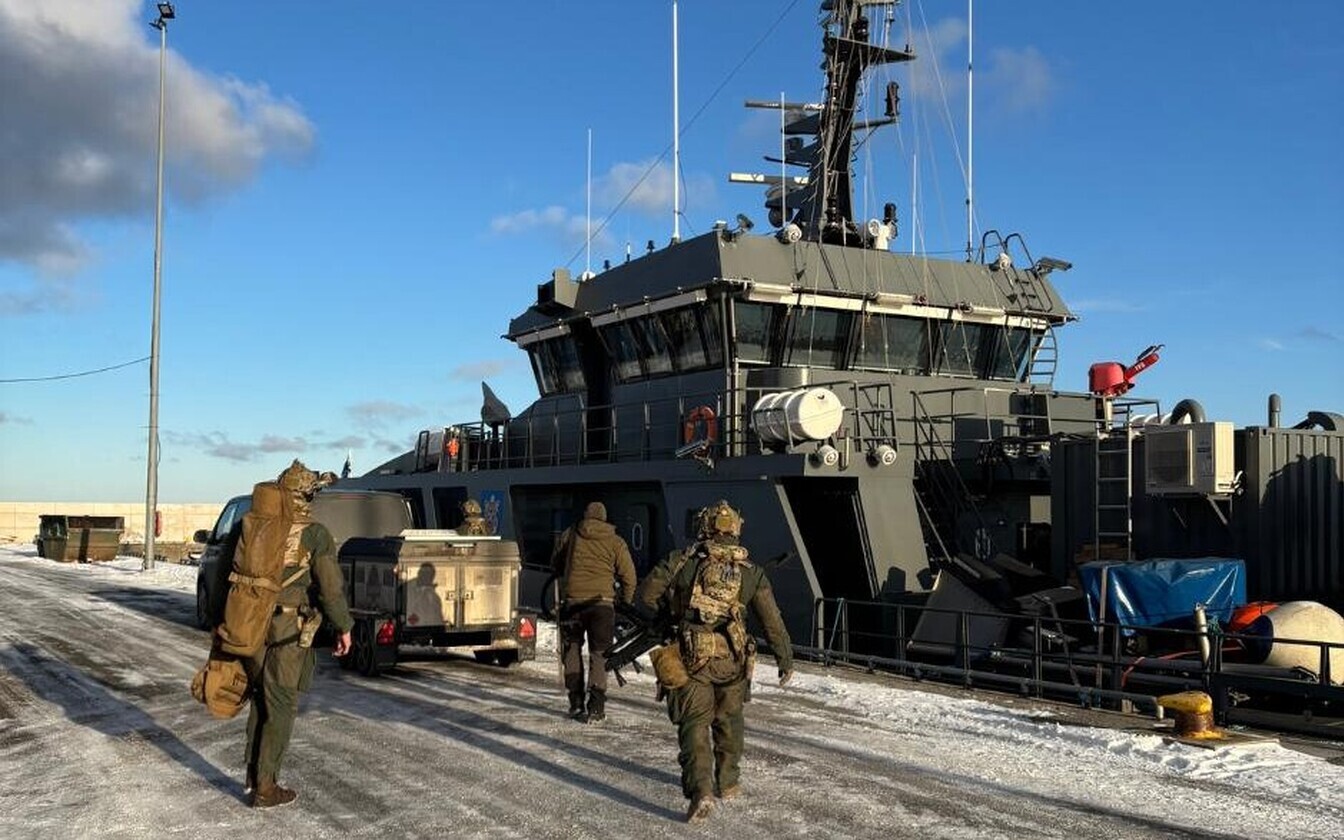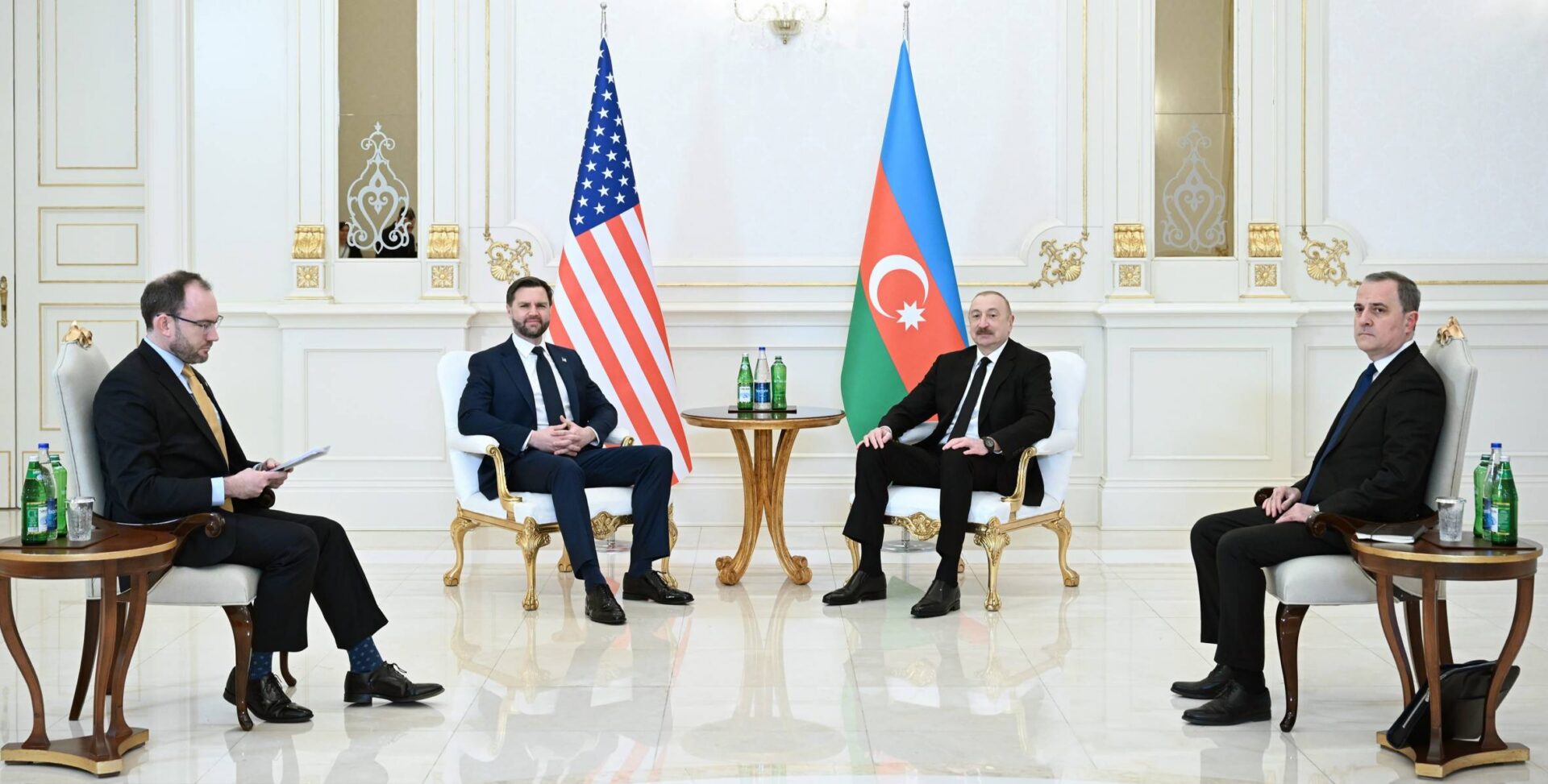
Putin’s Preemptive Maneuvering Around NATO Summit is Cut Off
Putin’s Preemptive Maneuvering Around NATO Summit is Cut Off
Executive Summary:
- The St. Petersburg International Economic Forum, held on June 18–21, was a showcase of artificial optimism for Russia’s economy, despite most of Russia’s economic sectors outside of the military-industrial complex being in decline.
- Russian President Vladimir Putin projected optimism about Russia’s economy and global standing, and targeted NATO leaders ahead of the June 24–25 summit in The Hague, aiming to counter growing Western unity and defense spending.
- Putin’s inability to show tangible support outside of verbal solidarity for a key strategic partner following the United States and Israel’s strikes on Iran shows that Europe’s risks of confrontation with Russia remain manageable.
The annual St. Petersburg International Economic Forum, held this year from June 18 to 21, used to be a meeting place for investors weighing opportunities in the dynamic Russian market against the risks of expropriation and corruption in Russian companies. Since Russia’s full-scale invasion of Ukraine, however, investors from most parts of the world have stopped coming to Russia, so the forum has turned into a show of fake innovation. Even “patriotic” commentators compare it to the Soviet Exhibition of Achievements of National Economy. This massive exhibition center propagandized the successes of an economic system that was in full collapse by the late 1980s (Top War, June 21). Despite its artificial displays of economic success, the St. Petersburg International Economic Forum has developed important features, including a series of sessions where government ministers and key experts discuss looming economic problems more freely than in the usual rigidly censored discourse (Meduza, June 20). The attendance of Russian President Vladimir Putin is another important component of the forum. The president traditionally seeks to generate publicity by enriching his address with memorable figures of speech (The Bell, June 20).
Russian professionals who have kept their government positions for many years have learned to articulate their concerns obliquely, so the extent of official analysis expressed was that the Russian economy is on the brink of recession (Izvestiya, June 21). In reality, contraction is well underway in most sectors—except for parts of the military-industrial complex—and the lack of enthusiasm about most exhibits in the vast space of the forum was an implicit acknowledgment of this fact (Kommersant, June 19). According to most ministers and their economic experts, the only way to stimulate economic growth is to reduce the key interest rate. Russia’s Central Bank recently lowered the key interest rate to 20 percent, which is still more than twice official inflation estimates (Forbes.ru, June 6; Fontanka.ru, June 20). Senior Russian officials concluded that new economic growth will require reduced state spending and economic control. The underlying message of these discussions is that economic upturn requires an end to Russia’s war against Ukraine, but Russian economists know better than to overtly hypothesize such scenarios (Novaya Gazeta Evropa, June 19).
The only Russian speaker who convincingly argued that they believed in Russia’s strong growth, mild investment climate, and technological leadership was Putin, whose words painted a significantly different reality than those of his loyal ministers (Kommersant, June 20). This optimism was matched only by the address of President of Indonesia Prabowo Subianto, the only high-level guest at the forum, who asserted that during his seven months in office, Indonesian production of rice and corn increased by 50 percent (Kommersant, June 20). Prabowo’s decision to attend the St. Petersburg forum instead of the Group of Seven (G7) summit in Kananaskis, Canada, was likely particularly pleasing to Putin following U.S. President Donald Trump’s assertion that Russia should not be invited back to the G7 soon (RBC, June 16). Putin’s declaration of the Russian economy’s strength was not primarily directed toward the rulers of the Global South, nor even Ding Xuexiang, the People’s Republic of China’s Deputy Prime Minister, who attended the forum. Instead, his address was intended for the leaders of North Atlantic Treaty Organization (NATO) member-states, who are due to gather in The Hague for the organization’s annual summit on June 24 and 25 (Carnegie Politika, June 16).
Moscow has been worried about the upcoming NATO summit on June 24–25 for weeks, and not only because Ukrainian President Volodymyr Zelenskyy will be present to argue his case for greater support for Ukraine, bolstered by additional evidence of Russian sabotage of the peace deal envisaged by Trump (RG.ru, May 27; Nezavisimaya, June 2). The Kremlin’s greater concern is the emerging consensus on significantly increasing European defense expenditures and investments in the military industry, which will reconfigure the pattern of trans-Atlantic relations and frustrate Russian plans for splitting NATO (Komsomolskaya Pravda, June 20). Europe has already shouldered the main burden of economic and military aid to Ukraine, and Putin’s attempts to discourage this resolve by pushing harder for Russian victory have been counter-productive (Re: Russia, June 20). Putin has waffled on whether he will attempt to capture Ukraine’s Sumy oblast, but his claim that every piece of land on which a Russian soldier sets foot is “ours” proves to the Europeans that allocating five percent of their gross domestic product (GDP) for defense is necessary (Republic, June 16; RBC; Top War, June 20).
The NATO summit agenda has been altered by the escalation of the Israel-Iran conflict and U.S. airstrikes on Iranian nuclear sites, a significant defeat for Russia’s key ally in the Middle East (Carnegie Politika, June 19). Speaking in St. Petersburg, Putin called those who question Russia’s reliability as a strategic partner “provocateurs,” but indicated that no Russian support would be provided to Iran except condemnation of the attacks (RBC, June 20). Putin reiterated his offer to mediate a de-escalation of the conflict, despite Trump having already turned down this self-serving proposition, as reported by Russian media (Interfax, June 18). The official Kremlin website, however, does not show that such a conversation took place, and the most recent exchange between the two presidents appears to have occurred on June 14, when Putin called to wish Trump a happy birthday (President of Russia, June 14). Kremlin experts tended to emphasize Trump’s reluctance to engage in conflict abroad, preferring to make deals. Russian officials must now conclude that mixed messages from the White House regarding Iran were merely a camouflage for the June 22 strikes (RIAC, June 20; Izvestiya, June 22).
The high-risk U.S.–Israel military campaign against Iran will reduce attention on the war against Ukraine at the NATO summit, but Russia is unlikely to benefit from this distraction. The Europeans may see an additional reason to strengthen their collective deterrence capabilities, but the main driver of European military buildup will remain the need to confront the Russian threat. European NATO members cannot ignore the scale and intensity of the threat, even without passionate appeals from Zelenskyy. While Putin’s solidarity with Ayatollah Khamenei’s regime in Iran confirms the intractable hostility of autocratic Russia to Europe and Ukraine, Putin’s inability to support a key strategic partner shows that the risks of confrontation with Russia remain manageable. Western allies typically reach joint positions by overcoming numerous disagreements, but Russia is spared the headaches and rewards of diplomacy because it has no allies.


